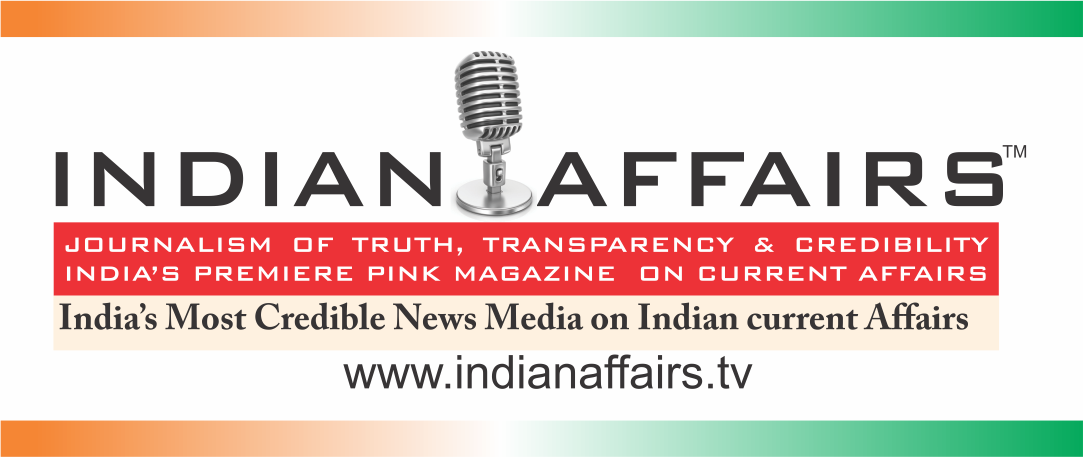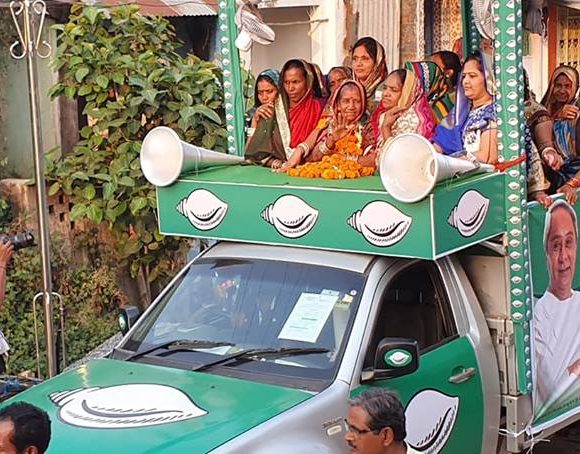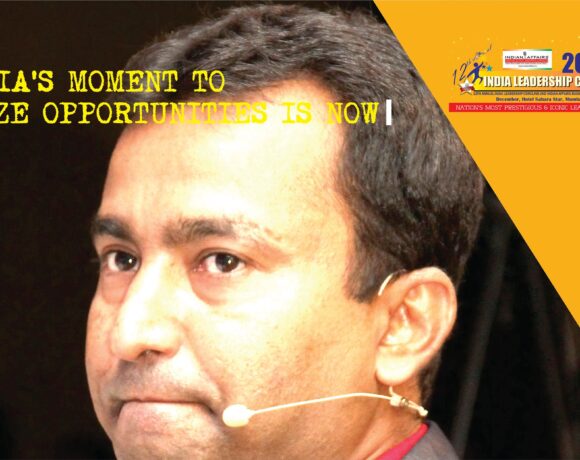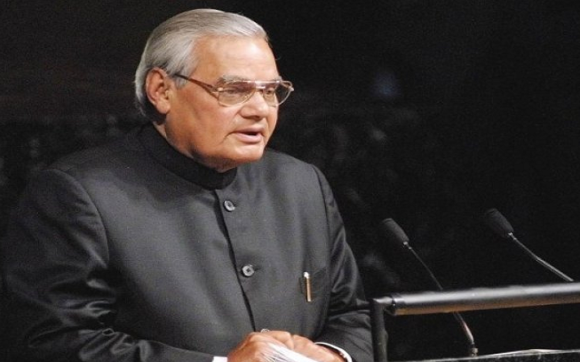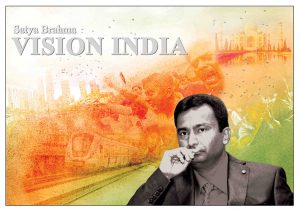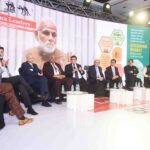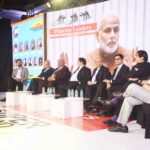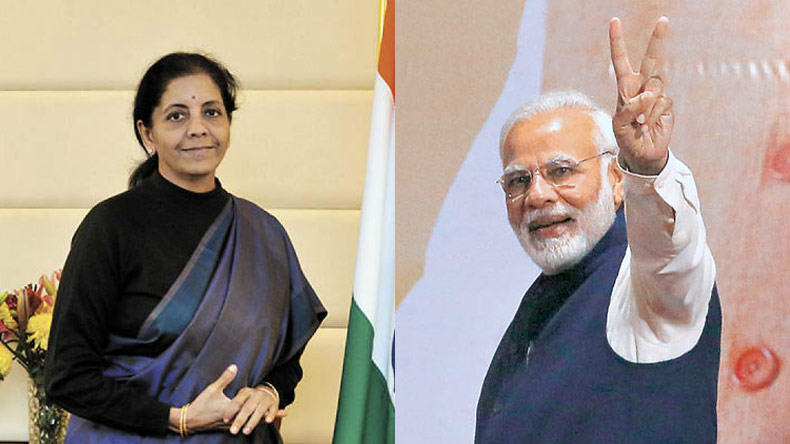

Periodical enquiries by the PMO cannot be construed as interference, she says.
As new evidence of interference by the Prime Minister’s Office (PMO) in the Rafale negotiations appeared in an exclusive story in The Hindu on Friday, the government, headed by Prime Minister Narendra Modi, sought to defend itself by citing then Defence Minister Manohar Parrikar’s file notings, which appeared to downplay the concerns of the then Defence Secretary G. Mohan Kumar.
Defence Minister Manohar Parrikar exchanges documents with his French counterpart Jean-Yves Le Drian after signing an MoU on the purchase of 36 Rafale fighter aircraft in the presence of French President Francois Hollande and Prime Minister Narendra Modi at Hyderabad House in New Delhi on January 25, 2016.
Defence Ministry protested against PMO undermining Rafale negotiations
The Hindu reported that officials of the Ministry of Defence (MoD) had raised a red flag over the PMO’s direct negotiations with the French government that — they noted in the file — undermined the official negotiating team’s position.
Below Mr. Kumar’s noting, Mr. Parrikar wrote: “It appears that the PMO and French President’s office are monitoring the progress of issues which was an outcome of the summit meeting and Para 5 appears to be an overreaction. Def Sec may resolve issue/matter in consultation with the Pr. Sec to PM.”
Mr. Parrikar’s noting reiterates all the facts noted by officials in the file, and reported by The Hindu, though he characterised part of the note as an “overreaction,” before asking the Defence Secretary to deal directly with the PMO, effectively delegating responsibility for resolving the issue to the Ministry’s top official.
In Parliament, Defence Minister Nirmala Sitharaman termed the questions regarding the PMO’s direct interference in the negotiations as “flogging a dead horse” and accused the Opposition of playing into the hands of multinational companies and vested interests. “They are flogging a dead horse. Periodical enquiries by the PMO cannot be construed as interference,” she told the Lok Sabha.
She also rebuffed the Opposition charge and asserted that if the PMO’s monitoring of a deal was construed as interference, one needed to recall that as the then Chairperson of the National Advisory Council, Sonia Gandhi used to run the PMO regularly during the UPA regime. The Defence Minister contended that Mr. Parrikar had replied to the letter by asking the official to remain “calm” as everything was “allright.” “This selective kind of noting and building an issue falsely on it is completely called out today,” Ms. Sitharaman told reporters.
“The response of the then Defence Minister was very clear… Under the direction of the same Defence Secretary, who was also the member of the negotiating committee, with his signature the file went to the Cabinet Committee on Security for approval,” she said.
Watch: How a decision by Prime Minister Modi raised the prices of Rafale jets by 41%
Defence Minister Nirmala Sitharaman on Friday said then Defence Minister Manohar Parrikar had addressed the concerns raised by officials over the Rafale negotiations.
“The response of the then Defence Minister was very clear… Under the direction of the same Defence Secretary, who was also the member of the negotiating committee, with his signature the file went to the Cabinet Committee on Security for approval,” she said.
The Hindu’s report published an official communication in which MoD officials raise questions on how the PMO was holding “parallel negotiations” alongside the Indian Negotiating Team (INT). Mr. Parrikar’s noting in the letter was initially made public by the news agency ANI.
Though Ms. Sitharaman quoted it to defend the government’s stand, it raises more questions both on the manner in which the Defence Secretary was asked to go easy, and whether the Defence Minister was entirely in the know about all aspects of the negotiations.
Commenting on Mr. Parrikar’s role in the negotiations, former Jammu and Kashmir Chief Minister Omar Abdullah tweeted, “The then Defence Minister Manohar Parrikar was clueless about the progress of negotiations. All he could say was “IT APPEARS that PMO & French President’s office are monitoring the progress”. He had no direct knowledge of progress & passed the buck back to the PMO.”
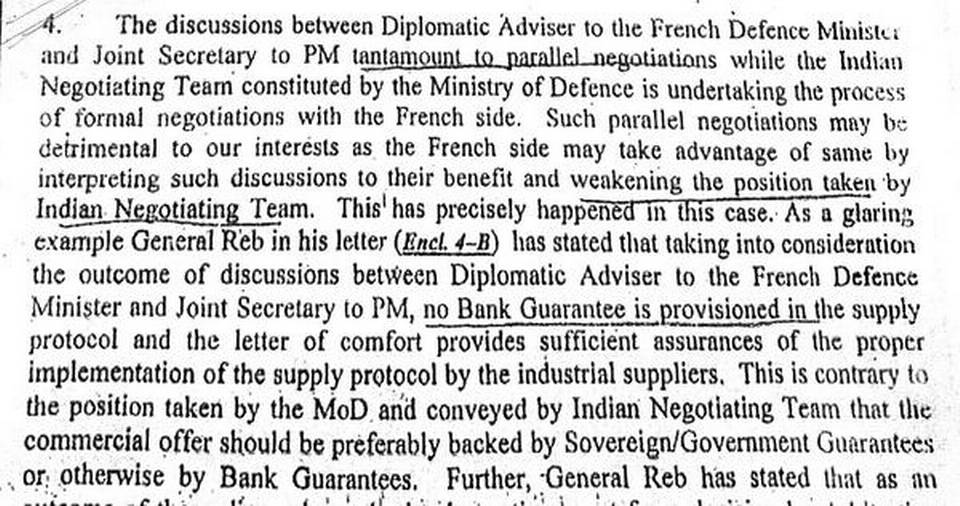
Following the revelations, the then Defence Secretary G. Mohan Kumar told ANI that the MoD letter had nothing to do with price. “It was about sovereign guarantees and general terms and conditions.” The government had repeatedly stated that the deal was between two sovereign governments and it was only recently revealed that the French government had given a ‘Letter of Comfort’ in lieu of sovereign guarantees.
Adequate safeguards
In a recent written reply in the Rajya Sabha, Ms. Sitharaman asserted that the ‘Letter of Comfort’ signed by the French Prime Minister and the IGA provide “adequate safeguards.” Also any dispute in the execution of the IGA would be settled through the Bilateral High Level Group established by the two governments, she added. “Any dispute not settled by this group shall be settled by arbitration in accordance with UNCITRAL (United Nations Commission on International Trade Law) arbitration rules,” Ms. Sitharaman wrote in the reply, indicating that despite the deal being negotiated through an IGA a dispute could be referred to a third party for resolution.
Further, Mr. Parrikar’s comment that the PMO might be “monitoring the progress of issues” strengthens arguments that the interference may have adversely affected the INT’s leverage.
The Hindu’s revelation on Rafale deal: PM consistently undermined IAF, Defence Ministry to benefit his “cronies”, says Yechury
“Former French President has admitted that he was made to select Anil Ambani by Mr. Modi himself,” says Rahul Gandhi.
Political leaders have started reacting to The Hindu’s Friday report on the Rafale fighter jet deal.
According to the report by N. Ram, at the height of the negotiations over the controversial €7.87 billion Rafale deal between India and France, the Defence Ministry raised strong objections to “parallel negotiations” conducted by the Prime Minister’s Office (PMO) with the French side.
PM must take responsibility for loss to exchequer: Yechury
CPI(M) general secretary Sitaram Yechury alleges that Prime Minister Narendra Modi had consistently undermined the Air Force and the Defence Ministry to benefit his “cronies” in the Rafale deal.
“Modi has consistently undermined the Air Force & Defence Ministry in the Rafale deal for corruption, to benefit his cronies. His actions have hurt the public exchequer & damaged national security. These facts have been hidden from Supreme Court where a review petition is pending,” he tweets.
“The PM must take responsibility for the loss to the exchequer, violation of procedure to get far fewer fighter jets than what Air Force wanted. All just to help cronies,” he says.
Yechury alleges that the “wires in this scam go straight to the top man”. “For whose benefit was Modi undermining defence ministry & Air Force? Why was IAF’s Deputy Chief forced to write to Modi’s PMO to stop ‘parallel negotiations’ with France?” he asks.
“We have always said Modi is directly involved in corruption & cronyism in this ? 59,000 crore Rafale scam,” he adds.
Shocking, says Antony
Former Defence Minister A.K. Antony says it is “shocking” that the PMO conducted parallel negotiations on the Rafale deal and allegesd it had “special interests to protect“.
“This is shocking to me. In the defence negotiations, only the Defence Ministry is involved,” the senior Congress leader tells reporters outside Parliament.
“Never in the history of Government of India it has happened like that. What is the special interest of the PMO?… Why did the PMO take such a special interest in this case? They have special interests to protect. They want to favour somebody,” he says.
“Some serious thing is wrong there. Otherwise, the PMO has no role in price negotiations. It is the duty entirely of the Defence Ministry and armed forces. Only they do these kind of negotiations,” he states.
The government should immediately accede to the Opposition’s demand for forming a joint parliamentary committee and it should meet and go through all the records, he says and adds “the PMO has something to hide“.
Seize all files related to Rafale deal: Kejriwal
Delhi Chief Minister Arvind Kejriwal tweets,”In the light of today’s expose on Rafale, “independent” CBI shud raid PMO, seize all the files related to Rafale and make arrests just like they raided my office and residence and Kolkata police commissioner.”
AAP MP Sanjay Singh to register police complaint against Modi
AAP MP Sanjay Singh says he will lodge a complaint with the Sansad Marg Police Station against the Prime Minister as the file notes have shown that PMO bypassed the MoD (Ministry of Defence) in the Rafale deal. He will also write to the CBI seeking action against the Prime Minister as well as an update on his letter alleging corruption in the deal sent to the CBI on March 12, 2018.
Cat is out of the bag: Stalin
DMK president M.K. Stalin says Mr. Modi has come under the Supreme Court’s contempt, as in its sealed envelope, the Centre never mentioned about the PMO’s negotiations.
“Never in independent India, a Prime Minister is caught in such serious allegations. The cat is out of the bag,” he says.
Flogging a dead horse: Defence Minister
Making a suo motu statement in the Lok Sabha, Defence Minister Nirmala Sitharaman dismisses the media report on the Rafale deal as “flogging a dead horse”, and accuses the Opposition of playing into the hands of multinational companies and vested interests.
“They are flogging a dead horse. Periodical enquiries by the PMO cannot be construed as interference,” the Minister says during Zero Hour.
Referring to the report, which claimed that the then Defence Secretary objected to the PMO allegedly conducting price negotiations with the French company, Ms. Sitharaman says then Defence Minister Manohar Parrikar had replied to the letter asking the official to remain “calm” as everything was “alright“.
Those aligned with BJP, please explain: Omar Abdullah
National Conference leader Omar Abdullah says he would like to see how those aligned with the BJP will explain reports that the Defence Ministry had protested over the mechanism being adopted by the PMO for the Rafale deal.
TaggingThe Hindu’s article, he tweets: “I’d like to see how this one is explained by the talking heads aligned to the BJP. @PMOIndia ‘weakened the negotiating position of the Ministry of Defence & the Indian Negotiating Team’ as per this note in a MOD file that went up the the Defence Minister.”
Rahul alleges PM has given money to his friend
At a press meet, Congress president Rahul Gandhi says, ”Today’s The Hindu report makes it crystal clear that the Prime Minister is conducting parallel negotiaitions. I appeal to the youth of this nation. The PM has stolen Rs. 30,000 crore of your money, bypassed the process and has given money to his friend. We have been calling for a JPC in this regard.
”It’s an open and shut case, President Hollande had said that PM has suggested the name of Anil Ambani. My friends in the Air Force… this money could have been used for your safety, or could have been used for your families. When an officer [Defence Ministry officials who wrote the note] puts such a thing on a piece of paper, he is doing it for a reason, he is saying that the PMO has bypassed us. PM is a representative of Anil Ambani.
”The entire judgement of the Supreme Court is questionable as the SC didn’t have these documents. They lied to the court. Do you think the SC would have given the judgement if the papers were available to them?
”Do I look rattled to you? Hollande clearly said Indian PM is a thief as he suggested Anil Ambani to us. Now the Defence Ministry is saying that PM is a thief. You can do an inquiry on anyone you want. No problem. But do an inquiry on this as well. You allow the law on Robert Vadra, Chidambaram, no problem. But also answer on Rafale. It is absolutely clear that the PM has stolen from the country and the pilots.
“I hate to use the strong words, but can’t help telling the truth. It is now a duty to tell the country that the PM is a thief.”
(With inputs from news agencies)
MoD protested against PMO’s parallel parleys
In his reply to Air Marshal Sinha on November 11, 2015, Mr. Ashraf “confirmed that he had held discussion with Mr. Luis Vassy, Diplomatic Adviser to the French Minister of Defence,” adding that Mr. Vassy “spoke to him on the advice of the French President’s office and the issues referred to General Reb’s letter were discussed.”
President Hollande had told AFP, as reported by Le Monde in September 2018, that “asked by Agence France-Presse on the sidelines of a conference in Montreal on Friday, Hollande said that the name of Reliance Group had appeared as part of a ‘new formula’ in negotiations over the Rafale deal, decided by the Modi government after it came to power.” The reference was to the Anil Ambani-owned Reliance Defence.
The Defence Ministry note also stated that “the discussions between Diplomatic Adviser to the French Defence Minister and Joint Secretary to PM tantamount to parallel negotiations while the Indian Negotiating Team constituted by the Ministry of Defence is undertaking the process of formal negotiations with the French side.”
Detrimental to interests
“Such parallel negotiations may be detrimental to our interests as the French side may take advantage of same by interpreting such discussions to their benefit and weakening the position taken by Indian Negotiating Team. This has precisely happened in this case,” the note added.
Citing “a glaring example”, the Defence Ministry note pointed out that General Reb in his letter had stated that “taking into consideration the outcome of discussions between Diplomatic Adviser to the French Defence Minister and Joint Secretary to PM, no Bank Guarantee is provisioned in the supply protocol and the letter of comfort provides sufficient assurances of the proper implementation of the supply protocol by the industrial suppliers.”
This, the note stated, was “contrary to the position taken by the MoD and conveyed by Indian Negotiating Team that the commercial offer should be preferably backed by Sovereign/Government Guarantee or otherwise by Bank Guarantee.” Another instance of a contrary stand taken in the parallel negotiations was on the arbitration arrangement, the note pointed out.
This is not the only instance of “parallel negotiations” in which the Indian side took contrary positions. It has already been reported elsewhere that the National Security Adviser, Ajit Doval, negotiated with the French side in Paris in January 2016 and The Hindu has access to documentation that confirms this. Mr. Doval’s advice to Mr. Parrikar on doing away with a sovereign guarantee or bank guarantee for the Rafale deal was also recorded by the then Defence Minister in a file noting.
Big increase in Rafale’s price came because a deal bypassing mandated procedures and made in the face of official objections resulted in €1.3 billion ‘non-recurring’ cost attributed to the ‘Design and Development’ of 13 India Specific Enhancements being spread over 36 instead of 126 aircraft
Prime Minister Narendra Modi’s decision, announced out of the blue in Paris on April 10, 2015, to buy 36 Rafale fighter jets from France instead of the 126 asked for by the Indian Air Force for seven squadrons pushed the price of each fully fitted, combat-ready aircraft up by 41.42%. It was the National Democratic Alliance government’s acceptance of the cost of €1.3 billion claimed for the ‘design and development’ of 13 India Specific Enhancements (ISE), and the distribution of this ‘non-recurring cost’ over 36 instead of 126 bare-bones aircraft, that was the major reason for the big increase in price.
The NDA government has refused to disclose even to a privileged committee of Parliament full information on the pricing of a Rafale aircraft, contending that its agreement with France on the ‘Exchange and Reciprocal Protection of Classified or Protected Information’ stands in the way of such disclosure. The French government, however, has made it clear that this inter-governmental agreement is there only “to protect the classified information provided by the partner, which could, in particular, impact the security and operational capabilities of the defence equipment.” The restriction clearly does not apply to the disclosure of pricing details. In fact, a scan of news media coverage reveals that there has been selective background briefing by military and civilian defence officials on technical and other supposedly sensitive details of the deal and that these briefings have helped answer some, but not all the critical questions being asked about the Rafale deal, chiefly on the pricing of these medium multi-role combat aircraft (MMRCA).
This article, based on information exclusively available to The Hindu, focusses on the interesting question of how and why the price per Rafale fighter jet of the F3-R standard, with practically the same configuration and capabilities, changed substantially over three points, in 2007, 2011, and 2016.
In 2007, five years before M/s Dassault Aviation was declared the L1 vendor, that is, the Lowest Bidder and the presumptive winner of the tender floated by the United Progressive Alliance government for the supply of 126 Rafales (18 flyaway plus 108 to be manufactured, under licence, in India by Hindustan Aeronautics Limited), the price quoted by the vendor for one flyaway bare-bones aircraft was €79.3 million. By 2011, the escalation cost factor had taken this per-aircraft price up to €100.85 million. In 2016, the 9% discount on the 2011 price obtained by the NDA government for the 36 Rafales it was buying from France through an Inter-Governmental Agreement brought this per-aircraft price down to €91.75 million.
But that is not even half the story. Dassault claimed a €1.4 billion cost for the ‘design and development’ of 13 India Specific Enhancements, that is, additional capabilities in the form of hardware as well as software that had been specified by the Indian Air Force all along, and this cost was negotiated down to €1.3 billion. What it meant was that the design and development cost, now distributed over 36 Rafale fighter jets, shot up from €11.11 million per aircraft in 2007 to €36.11 million when the deal was struck in 2016.
The Hindu has reviewed official documentation which reveals that three senior Defence Ministry officials on the seven-member Indian Negotiating Team (INT) objected to the high cost of €1.3 billion (brought down from the original €1.4 billion) assigned by the vendor, Dassault Aviation, to India Specific Enhancements for the 36 Rafale fighter jets. Rajeev Verma, Joint Secretary & Acquisitions Manager (Air), Ajit Sule, Financial Manager (Air), and M.P. Singh, Adviser (Cost) noted: “The cost of India Specific Enhancements (ISE) was too high.” (It is also a matter of official record that the three senior Defence Ministry officials objected to several other aspects of the proposed inter-governmental deal, including the inflated ‘benchmark price,’ but these issues need not concern us here.)
Objections overruled
The other four members of the Indian Negotiating Team – the Deputy Chief of Air Staff of the Indian Air Force, who headed the team; the Joint Secretary (Defence Offset Management Wing); the Joint Secretary and Additional Finance Adviser; and the Assistant Chief of Air Staff (Plans) – overruled the objection. The relevant resolution states: “The seven member Indian Negotiating Team (INT) concluded by majority decision of 4-3 that the ISE cost of 1.3 bn euros at May 2015 EC was much better than that in the quote of 1.4 bn euros at EC 2009 in 126 MMRCA case. Further, it was concluded that ISE cost is a non-recurring cost (NRC) and is not affected by the number of aircraft purchased. The facts were presented to DAC [Defence Acquisition Council] which agreed to INT’s viewpoint and it was ratified by the CCS [Cabinet Committee on Security].”
The official record shows that various aspects of the government-backed proposal for the procurement of 36 flyaway Rafales were presented or referred back to the DAC on five separate occasions between August 2015 and July 2016. It is surely significant that every one of the 10 contentious issues raised within the INT was settled by a 4-3 majority vote. The negotiating team duly completed its work and its chairman submitted a report on August 4, 2016.
Rafale deal, Rafale deal controversy, rafale fighter jet, rafale deal india, rafale jet, dassault rafale
Thirteen India Specific Enhancements to the Rafale fighter jet were demanded by the Indian Air Force.
According to the government’s notes on the decision-making process submitted to the Supreme Court of India and shared with a group of petitioners in compliance with the court’s orders, “the INT report and the proposal for obtaining approval of the Cabinet Committee on Security (CCS) was processed in Ministry of Defence…inter-ministerial consultations [took place] with Finance Ministry and Ministry of Law and Justice,” and the proposal was placed before the CCS on August 24, 2016. The proposal included the matter of pricing as well as other contentious issues relating to the proposed deal.
DAC’s role
It is again significant that there is no reference in the government notes to any further role for the Defence Acquisition Council headed by Defence Minister Manohar Parrikar. The DAC was empowered to take a decision under the Defence Procurement Procedure, but Mr. Parrikar shied away from his responsibility and “progressed” the matter, in other words, passed the buck, to the Cabinet Committee on Security, as recommended by the INT chairman. All this was unsurprising considering that more than a year earlier Prime Minister Modi had spoken his mind, reversing the course followed over the previous decade and announcing, through an Indo-French joint statement in Paris, a decision to buy the 36 Rafale fighter jets in flyaway condition “on terms that would be better than conveyed by Dassault Aviation as part of a separate process under way.” The CCS, chaired by the Prime Minister, quickly ratified the majority decisions of the Indian Negotiating Team.
Thirteen India Specific Enhancements to the Rafale fighter jet were demanded by the Indian Air Force as part of its urgent strategic requirement in both the UPA-era bid and the 2016 deal. Besides the additional equipment to be fitted on the bare-bones Rafale fighter jet, this brought in the cost assigned by M/s Dassault Aviation to the design and development of these enhancements so that they could be ‘seamlessly’ integrated in the aircraft.
While the BJP government has refused to disclose what these 13 India Specific Enhancements are, partly on grounds of national security, it is extremely unlikely that this information can remain a secret from the international community of military experts and journalists specialising in defence and security matters. In fact, some of the information is already available in the public domain. An Indian Air Force document, cited by The Hindu’s Special Correspondent, Dinakar Peri, in a November 2018 report (https://www.thehindu.com/news/national/india-specific-rafale-add-ons-after-delivery-of-all-36-fighters/article25532159.ece), states that the 13 ISE capabilities are “not present in the Rafale aircraft being operated by other countries.” They include capabilities relating to radar enhancements “which will provide the force with better long range capability”, a helmet mounted display “through which IAF pilots will be able to counter many threats simultaneously”, the capability to start and operate from high-altitude airfields, an advanced infrared search-and-track sensor, “a very potent electronic jammer pod”, and capabilities pertaining to avionics. The Hindu has access to the full ISE list but will not be presenting it here, because the technical details contained in the list, which the government insists on keeping secret, are not strictly relevant to this story.
Special leverage?
An important question that arises is whether in 2015-2016 the NDA government had any special leverage that might have enabled it to extract substantial price reductions from France for the 36 fully fitted, combat-ready Rafale fighter jets. The answer is yes – and the leverage was provided by an attractive, if not mouth-watering, offer that came from the Eurofighter Typhoon Consortium which comprises leading aerospace and defence companies from the United Kingdom, Germany, Italy, and Spain. In fact, the official documentation shows that the three dissenting members of the Indian Negotiating Team raised this issue in the following manner: “(f) Issue-6. The 20% discount offer of EADS [European Aeronautic Defence and Space Company] in 126 MMRCA tender was ignored. The INT should take EADS quote for 36 Rafale delivery equivalent and then compare prices.” The relevant INT resolution, adopted by a 4-3 majority, asserts that “the unsolicited offer of 20% by EADS in 126 MMRCA deal” was not in line with the provisions of the Defence Procurement Procedure and was also against Central Vigilance Commission (CVC) guidelines, since it was given after the bidding closed.
The Eurofighter had come through technical and flight evaluations carried out between 2009 and 2011 along with Rafale and been found to be fully compliant with the Indian Air Force’s MMRCA requirements. It had lost out to Rafale, on price. With the negotiations for the acquisition of the 126 Rafale fighter jets stalling for a complexity of reasons, the Eurofighter Consortium represented by Airbus (formerly EADS) sensed an opportunity. In a letter dated July 4, 2014 addressed to the then Defence Minister, Arun Jaitley, Domingo Urena-Raso, Head of Military Aircraft, Airbus Defence and Space, outlined a fresh offer. This featured 126 Eurofighter Typhoons, a 20% reduction in the total package price “compared to the numbers previously submitted”, improved aircraft capabilities, “favourable payment terms”, an enhanced transfer of technology process by setting up a production line and a Eurofighter Typhoon Industrial Park in India along with “a comprehensive training and support programme”, and the tantalising prospect of accelerated delivery of Eurofighter jets by diverting deliveries meant for Germany, the U.K., Italy, and Spain “to the benefit of the Government of India should you wish to utilize such an accelerated program.”
Nor did the new Eurofighter offer seem entirely “unsolicited.” Sr. Urena-Raso’s letter to Mr. Jaitley opens with this intriguing sentence: “The interest of the Indian Government to replace its existing fighter aircraft fleet has continually attracted our full engagement and we are hence delighted to respond to your request as conveyed through our Nations’ Ambassador.”
The opportunity to make full use of the leverage provided by the new offer from the Eurofighter Consortium was lost. The official stance that entertaining the offer at that stage was impermissible under the DPP and would also be violative of CVC guidelines was, at best, a debatable position to take. By going for an inter-governmental agreement, in lieu of a straight commercial contract with M/s Dassault Aviation, for the acquisition of 36 flyaway fighter jets instead of the 18 flyaway Rafales plus the 108 to be manufactured, under licence, by HAL, the Indian and French governments as well as Dassault were, in effect, crafting a new deal. Walking away from the deal under negotiation if the finally offered price was not right was certainly an option – and that knowledge should have given the Indian negotiators strong leverage with France. The leverage might even have been potent enough successfully to push for pricing and related terms that would have matched the Eurofighter offer.
Distributed over 36 jets
To sum up the new information presented in this article: In the 2007 bid by M/s Dassault Aviation, the ‘design and development’ cost of €1.4 billion claimed by the vendor for the India Specific Enhancements was to be spread over 126 aircraft. Although this fixed cost was negotiated down to €1.3 billion in the 2016 inter-governmental deal, it was distributed over 36 fighter jets. This straightaway meant an increase of €25 million in the price of each aircraft as compared with the UPA-era bid by Dassault.
The increase of €25 million was far greater than the 9% reduction in the price of a bare-bones aircraft offered by France in 2016. That this discount was applied to the price of a bare-bones, and not a fully fitted, combat-ready, Rafale was confirmed by Dassault Aviation Chairman and CEO, Eric Trappier, in a November 2018 interview to ANI.
The 9% reduction was explained by Union Law Minister Ravi Shankar Prasad at a press conference at the BJP’s headquarters on July 23, 2018: “The UPA invited quotes for 126 aircrafts in 2007. The price quoted for Rafale was Euro 79.3 Million, which also had inbuilt escalation formula. When the bid was opened in 2011, the proposed cost in the bid document was 100.85 Million Euros per aircraft; however, this also could not be finalized. When in 2016, after NDA came to power, under the inter-government agreement the cost per aircraft finalized was 91.75 Million Euros.” The Minister added: “Therefore the price determined during NDA Government is 9% lesser than what was negotiated during UPA Government. Therefore, the corresponding cost in Indian Rs 670.32 Crore per aircraft has been conveyed to the Parliament.”
What the Law Minister’s statement failed to say was that when the ‘non-recurring’ design and development cost claimed for the India Specific Enhancements was factored in, the per unit price negotiated by the NDA government for the 36 Rafale fighter jets worked out to €127.86 million, which was 41.42% higher than the price quoted by Dassault in 2007. When the escalation formula was applied, the price per aircraft agreed to by the NDA government turned out to be 14.20% higher than the proposed price per aircraft when the commercial bid was opened in November 2011 under the UPA government.
As confirmed by M. Trappier in his ANI interview, the 2007 and 2011 prices mentioned by Mr. Prasad were for the 18 flyaway aircraft. The remaining108 aircraft were to be manufactured under licence by HAL in Bengaluru, for which negotiations were at an advanced stage when the surprise announcement that India would buy 36 flyaway Rafales from France came from Paris in April 2015. Among other things, this meant jettisoning HAL and with it the plans for technology transfer, building self-reliance in the defence sector, and ‘Make in India’.
What was more, in exchange for the 9% reduction in price, the Indian government agreed to abandon the options or ‘follow-on’ clause, which was very much part of the deal being negotiated with M/s Dassault Aviation for the 126 aircraft. Dropping the follow-on clause – having an option for a follow-on contract to buy up to 50% of the quantity bought earlier, under the same terms and conditions – was a deviation from standard practice in defence contracts. In the deal under prolonged negotiation, the UPA government had an option to buy 189 aircraft with the same fixed cost of design and development of the India Specific Enhancements.
Watch: How a decision by Prime Minister Modi raised the prices of Rafale jets by 41%
A fairly large literature, investigative, prosecutorial, and critical, is now available on various aspects of the Rafale deal of 2015-2016. This literature has shown or alleged that institutions and mandated or standard procedures laid down for defence acquisitions were bypassed; that guidelines were violated; that the benchmark price, a sort of ceiling for the whole package, discovered by financial experts was arbitrarily raised from €5.2 billion to €8.2 billion at political behest; that crony capitalism was behind the NDA government’s choice of key offset partners; that the Modi government took an indefensible risk by not insisting on a sovereign guarantee from the French government, as advised by senior officials in the Ministry of Law and Justice, and settling instead for a ‘Letter of Comfort’ from the French Prime Minister, which considering M/s Dassault Aviation’s fragile financial situation ‘is no comfort at all’ (in the eyes of a former senior bureaucrat who has gone on record); and indeed that the Indian Air Force was short-changed by the deal. In addition, top-level corruption and criminal misconduct have been alleged, notably by Congress president Rahul Gandhi, and three well-known public interest petitioners, Yashwant Sinha, Arun Shourie, and Prashant Bhushan, who along with two others took their case to the Supreme Court of India but could not succeed.
Comparisons have been drawn with the Bofors scandal, by protagonists as well as antagonists, towards different ends. The process of decision-making on a vital defence acquisition in 2015-2016 does bear an eerie resemblance to how decisions were made in 1985-1986; but unlike Bofors, where journalistic investigation was able to uncover corruption disguised as ‘commissions’ paid secretly into Swiss bank accounts, no money trail has been discovered so far in the current case. What seems guaranteed is that we have not heard the last of l’affaire Rafale.
